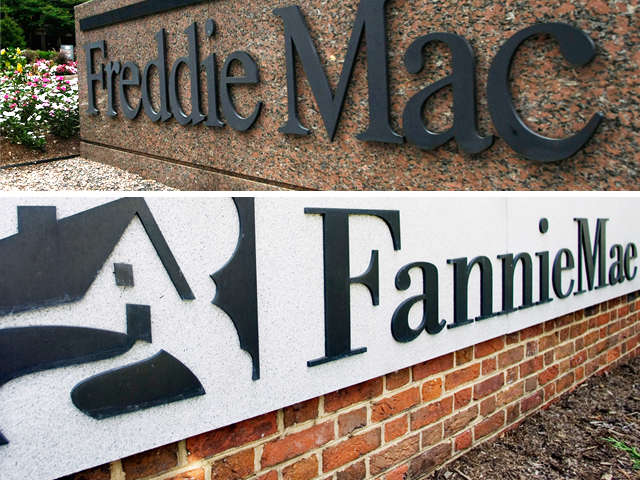Five years after the housing collapse of 2008, the U.S. government’s role in the mortgage market could have taxpayers on the hook for another multibillion-dollar rescue of Fannie Mae and Freddie Mac.
The Federal Housing Finance Agency took over both government-sponsored enterprises in 2008 to ensure their solvency in the wake of the housing crisis. FHFA managed their finances and portfolios through a massive taxpayer bailout totaling $187 billion.
But in more than four years of financial oversight by the FHFA—known as conservatorship—there has been little talk of reforming Freddie Mac and Fannie Mae by either shuttering them, converting them to private companies, or allowing them to remain government-backed enterprises with modest reforms.
This year—2013—appears to be a solid year for housing. But “weak fundamentals” mean a market downturn without reforms to Fannie Mae and Freddie Mac could put taxpayers on the hook for billions more dollars, according to finance and real estate scholar Anthony Sanders.
Still Dominating Market
Due to the ongoing credit crunch in the private loan market, both Fannie Mae and Freddie Mac maintain an overwhelming interest in the home mortgage industry. Fannie Mae’s November 2012 numbers, the most recent available, show $3.2 trillion in home loans, mortgage-backed securities, and other guarantees for Fiscal Year 2012.
“The conservatorship was never intended to be a permanent status,” said David John, a senior research fellow at the Heritage Foundation. “It’s really going to depend on what Congress is willing to do. Should there be a renewed financial crisis, should there be another housing crash—although I don’t foresee one at this point—the situation could be fairly expensive.”
The last serious mention of reforming the mortgage giants came in February 2011, when the Treasury Department and Department of Housing and Urban Development offered a plan to reduce Fannie Mae’s and Freddie Mac’s roles in the housing market.
‘No Definitive Plan’
Details were scant, however, and according to a Government Accountability Office report released Jan. 23, “no definitive plan had been developed and the enterprises remain in conservatorship, which places taxpayers at continued risk. Furthermore, given the large role that the enterprises play in the mortgage market, the future of mortgage lending depends, in part, on how the enterprises are resolved.”
But the scope of the two giants’ role in the mortgage industry, combined with deep political divisions in Congress on how to shape the future of Fannie Mae and Freddie Mac, make reform unlikely.
“I don’t know if anybody has the ability or the votes to do anything with them easily,” said Robert Van Order, professor of finance at George Washington University’s School of Business and a former chief economist at Freddie Mac.
“I think the reason no one wants to do anything is because there is a worry that no [private lender] would step in,” said Richard Green, director of the Lusk Center for Real Estate at the University of Southern California. “At the same time, the performance of the loans they have been guaranteeing since 2010 has been great. [Freddie and Fannie] are actually repaying Treasury right now, slowly but surely. So I think that’s why all the incentives are for people not to do anything.”
But Green concedes while no downturn in the housing market seems likely at this moment, that doesn’t mean there couldn’t be one.
Weak Fundamentals
Anthony Sanders, a senior scholar at the Mercatus Center of George Mason University who specializes in financial markets and real estate, said government incentives have attracted investors rather than traditional homebuyers. That has produced positive-looking housing numbers that may not be solid.
“This isn’t your father’s housing recovery,” he said. “This is investor-driven, and a lot of it driven by Fannie and Freddie sales of foreclosed homes for rent. The fundamentals are weak. We don’t know how this is going to play out.”
Despite record-low interest rates, private lending is still at a crawl, leaving the bulk of the nation’s mortgage market on Fannie Mae and Freddie Mac’s balance sheet, Sanders notes.
“There is just not the love for housing in the United States that there was 10 years ago,” he said.
Carten Cordell ([email protected]) reports for Watchdog.org. Reprinted with permission.




